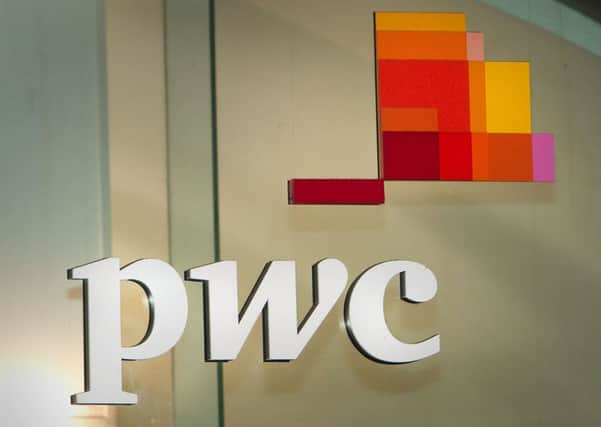PwC ‘promoted tax avoidance on industrial scale’, say MPs


PwC was heavily criticised in an investigation by the Commons’ Public Accounts Committee (PAC) on how accountants provide “complex strategies and contrived structures” to big companies to help them slash tax bills.
It found that arrangements to divert profits artificially via Luxembourg promoted to numerous PwC clients “bear all the characteristics of a mass-marketed tax avoidance scheme”.
Advertisement
Hide AdAdvertisement
Hide AdThe accountancy firm said it stood by its evidence and disagreed with the PAC’s conclusions.
MPs investigated following the leak of hundreds of documents last November that appeared to show how the firm secured deals with Luxembourg tax authorities for 343 multinational companies between 2002 and 2010.
Margaret Hodge, chair of the committee, said: “We believe that PwC’s activities represent nothing short of the promotion of tax avoidance on an industrial scale.
“The effect has been to reduce the amount of corporation tax that some multinational companies pay in the countries in which they make their profits.”
Advertisement
Hide AdAdvertisement
Hide AdThe report said many of the companies that received advice from PwC - citing Amazon, Ikea, Burberry, Accenture, Coca-Cola and Vodafone - were household names and that at least 80 had UK headquarters.
“These deals appeared to contradict the evidence which PwC had given us in 2013,” the report said.
“PwC had told us that it does not sell schemes but the Luxembourg leaks suggest that PwC had advised many multi-national firms to adopt similar complex financial structures for the purpose of avoiding tax.”
It called for the Government to take a more active role in regulating the tax industry “as it evidently cannot be trusted to regulate itself”.
Advertisement
Hide AdAdvertisement
Hide AdThe committee said there were long-standing concerns about the way in which some multinational companies paid little corporation tax despite doing a large amount of business in the UK.
It said common features of deals arranged by PwC that it investigated saw the companies all set up subsidiaries in Luxembourg where they were protected by advance tax rulings from the authorities.
Most of these used a complex system of intra-company loans from the Luxembourg subsidiaries to subsidiaries located elsewhere, the MPs said.
Interest on these loans was deductible against profits in other countries while the interest paid to Luxembourg was taxed at a very low rate as a result of the agreement negotiated with the tax authorities, the report said.
Advertisement
Hide AdAdvertisement
Hide Ad“The schemes thereby reduced the amount of corporation tax that multinational companies have to pay in the countries in which they are truly operating.”
The report cited the example of Shire Pharmaceuticals, which, while it has external borrowings of £800m, makes interest payments on intra-company loans worth $10bn (£6.5bn) to a company it has established in Luxembourg.
It said: “The effect is to shift profits from other countries, where tax rates are higher, to Luxembourg.
“The ‘substance’ of Shire’s business in Luxembourg, used to justify these arrangements, consists of two people out of the 5,600 staff the company employs globally.
Advertisement
Hide AdAdvertisement
Hide Ad“Neither PwC nor Shire could demonstrate that the company’s presence in Luxembourg was designed to do anything other than avoid tax.”
The report said Shire paid tax on only 0.0156 per cent of its profits to the Luxembourg tax authority.
Ms Hodge said the committee had found evidence by PwC in January 2013 that it was “not in the business of selling schemes” and that it did not “mass-market tax products” was “misleading”.
She said: “Many other major firms were named in the Luxembourg tax rulings published by the International Consortium of Investigative Journalists in November 2014 and our concerns go wider than the behaviour of PwC and Shire alone.
Advertisement
Hide AdAdvertisement
Hide Ad“The fact that PwC’s promotion of these schemes is permitted by its own code of conduct is clear evidence that Government needs to take a more active role in regulating the tax industry, as it evidently cannot be trusted to regulate itself.
“In particular, HM Revenue & Customs (HMRC) needs to do more to challenge the nature of the advice being given by accountancy firms to their clients, ensure that tax liabilities reflect the substance of where companies conduct their business and introduce a new code of conduct for all tax advisers.
“Unless HMRC takes urgent action, this irresponsible activity will go unchecked, causing harm to both the public finances and the reputations of the companies involved.”
The MPs’ report came as the National Audit Office (NAO) found HMRC had made “good progress” since 2010 towards its aims of maximising revenue and making sustainable cost savings, while responding positively to PAC recommendations.
Advertisement
Hide AdAdvertisement
Hide AdIt said the department had reorganised to tackle some of the root causes of marketed tax avoidance, and had sought and received new powers to allow it to disrupt this and challenge the users of avoidance schemes more quickly.
The gap between the tax that is collected and should be collected was £34bn in 2012-13 according to HMRC, of which £3.1bn was lost to tax avoidance.
A spokeswoman for PwC said: “We stand by the evidence we gave the Public Accounts Committee and disagree with its conclusions about the work we do.
“But we recognise we need to do more to explain the positive role we play in the tax system and in helping businesses to operate successfully.
Advertisement
Hide AdAdvertisement
Hide Ad“We agree the tax system is too complex, as governments compete for investment and tax revenues. “We take our responsibility to build trust in the tax system seriously and will continue to support reform.”